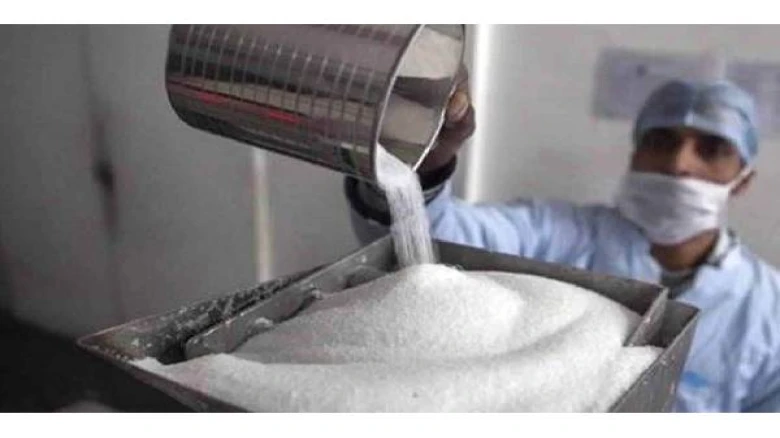Sports

This comes at a time when the government is struggling to contain severe inflationary pressures, with prices of food, fuel, and crop nutrients soaring.
Digital Desk: The government announced
on Tuesday that sugar exports would be restricted beginning June 1 and that 20
lakh metric tonnes of crude soyabean oil and crude sunflower oil would be
imported duty-free for two fiscal years (2022-23 and 2023-24).
To
maintain "domestic availability and price stability of sugar", the
government said it would allow exports of up to 100 lakh (10 million) MTs of
sugar during the current sugar season (October 2021 to September 2022).
With
effect from 1 June 2022 up to 31 October 2022 or until further orders,
whichever is earlier, export of sugar is allowed only with specific permission
from the Directorate of Sugar, Department of Food and Public Distribution
(DFPD), Ministry of Consumer Affairs, Food & Public Distribution. "The
detailed procedure for the issue of necessary permissions for the export of
sugar will be notified separately by the Department of Food and Public
Distribution."
India
is the biggest producer of sugar in the world and the second largest exporter
after Brazil. The move comes in a year when the country is set to register its
highest-ever exports. "Contracts for export of about 90 lakh MT have been
signed in the current sugar season 2021-22. About 82 lakh MT of sugar has been
dispatched from sugar mills for export and approximately 78 lakh MT has been
exported. The export of sugar in the current sugar season (2021-22) is at its
historic high, "a source said.
Sources
said the closing stock of sugar at the end of the sugar season (September 30,
2022) remains 60-65 lakh MT, which is equivalent to about three months’ stocks
required for domestic use. As per sources, "The government has been
continuously monitoring the situation in the sugar sector, including sugar
production, consumption, and exports as well as price trends in wholesale and
retail markets all over the country”.
The
Centre also announced a duty-free import of 20 lakh MT each of crude soyabean
oil and crude sunflower oil per year for two financial years (2022-23 and
2023-24). The move – nil customs duty and nil agricultural infrastructure and
development cess - will bring significant relief to consumers, the Central
Board of Indirect Taxes and Customs said in a tweet.
This
comes at a time when the government is struggling to contain severe inflationary
pressures, with prices of food, fuel, and crop nutrients soaring.
The
retail inflation rate surged to an eight-year high of 7.79 per cent in April,
while wholesale inflation has been in double digits for 13 consecutive months.
Retail edible oil inflation remained at 20-35 per cent level all through 2021,
with the latest print for inflation rate for oils and fats recorded at 17.28
per cent for April.
The
Centre announced tax cuts on petrol, diesel, coking coal, and raw materials for
making steel over the weekend as part of its efforts to cool mounting
inflationary pressure. According to some analysts, the cut in fuel taxes could
help reduce inflation directly by around 20 basis points in June, when its full
impact will be visible. The second-round effects are likely to be equally
strong.
The
Reserve Bank of India, while reducing the repo rate by 40 bps in an
out-of-turn monetary policy meeting earlier this month, had expressed concern
over high food and fuel prices feeding into inflation.
While
this decision will have a moderating influence on price pressures in the
economy, the worry is that inflation has become entrenched and is likely to
remain above the RBI’s medium-term inflation target of 2-6 per cent.
Leave A Comment